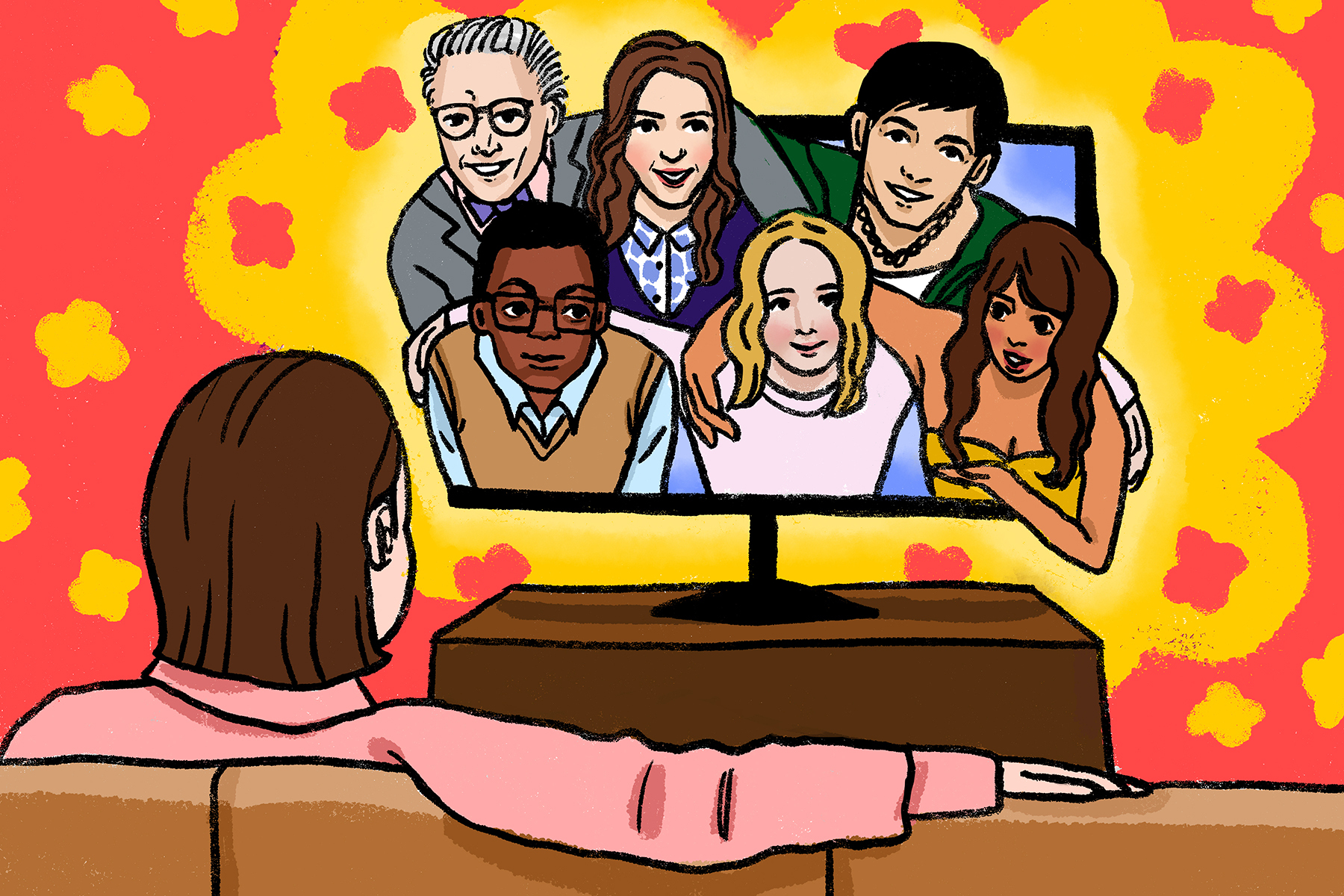There is a moment toward the end of the series finale of “The Good Place” in which a couple sits on a couch, gazing at a sunset-filled horizon. One character asks the other if they have any sort of profound message they’d like to share before leaving.
The character says, “Picture a wave. In the ocean. You can see it, measure it, its height, the way the sunlight refracts when it passes through. And it’s there. And you can see it, you know what it is. It’s a wave. And then it crashes in the shore and it’s gone. But the water is still there. The wave was just a different way for the water to be, for a little while. You know it’s one conception of death for Buddhists: the wave returns to the ocean, where it came from and where it’s supposed to be.”
The quote above, from the series finale, embodies NBC’s hit comedy “The Good Place.” Yet more than eight months after the show’s conclusion, it doesn’t seem like many people outside of its core fanbase are discussing the show, even with the fourth season now appearing on Netflix.
What makes “The Good Place” special? What makes it more than a sitcom? Rather than using conventional premises like in “Friends” or “How I Met Your Mother,” where a bunch of 20-somethings get caught up in personal drama and hijinks, “The Good Place” instead asks deeply philosophical questions and explores the human condition. It is this study of heavy subjects that makes the show remarkable.
Running from 2016 to 2020, “The Good Place” was on the air for four seasons. It was created by Michael Schur, who co-wrote and produced “The Office” and co-created fellow NBC sitcom “Parks and Recreation.” Schur developed “The Good Place” after reading several books about the afterlife.
But how exactly does the show consider these topics? It starts with Eleanor Shellstrop, played by Kristen Bell, waking up in “The Good Place” upon dying. But Eleanor doesn’t belong there — she was mistaken for another woman of the same name. Thus, with the help of her “soulmate” and former philosophy professor Chidi, played by William Jackson Harper, Eleanor tries to become a better person by applying philosophical theory into her new afterlife so she doesn’t get sent to the Bad Place.
What results afterward is a series of misadventures all taking place in the unusual setting of the afterlife as Eleanor and friends overcome many obstacles, such as the demons of the Bad Place, the peculiars of the afterlife and the moral debate of what it means to be good.
“The Good Place” explores these questions in humorous but thought-provoking ways. Considering that the show discusses the arguments and theories of numerous moral philosophers such as Aristotle, Immanuel Kant and John Locke, it can be a challenge to present that information to viewers in an easy and digestible way. Yet the show is able to do just that, but with fun and creative methods.
For example, in one hilarious sequence, the characters face the famous philosophical debate of “the trolley problem”, but in a literal scenario where the characters are forced to decide between saving one life or multiple lives. Moments like these allow viewers to laugh but also contemplate the actual ethics of the dilemma.
Furthermore, “The Good Place” has some of the finest character development on screen. Where else are you going to see a demon learn the fundamentals of human ethics? After all, the show champions the idea of change and self-improvement, which also makes it a motivational show that encourages personal development.
While “The Good Place” does all this and more throughout its first three seasons, it is the final question presented in the concluding season that is the most important and thought-provoking.
While the characters are already dead, they continue to live on in the afterlife. However, they face a big problem: The mere concept of eternity can be too overwhelming for some to handle, leading to a discussion of facing one final death and ending your existence. Thus, this last question being asked is, “How does death make our lives meaningful?”
These are clearly some gripping and outright morbid concepts to deliberate, which brings me back to the quote about the ocean. The lines weren’t taken from some ancient philosophical text; instead, it’s an original quote by creator Michael Schur. The wave metaphor digs deep into the fundamental fear all humans have of death. We often avoid thinking about it, despite it being one of life’s inevitabilities.
“The Good Place” presents an alternate view of thinking. Rather than spend our time worrying endlessly about dying, instead, we should embrace death. The series comes to the conclusion that spending eternity in paradise can “turn your brain to mush”. Because when you achieve everything you want in life and you can’t die, things lose their meaning.
So we should live our lives like the wave. We are alive right now in this moment, and one day we’ll return to being particles in the universe. But for the time being, we are us. And we should dance and kick and love and do everything possible while we have the time to be a wave.
There are only so many hours in the day to do a little bit of good in the world. No matter where we are, we’ll always be in “The Good Place.” What other series would come to such a poignant end? This show is a masterpiece that should be lauded for years to come.

















